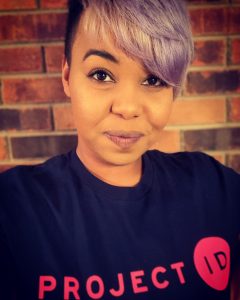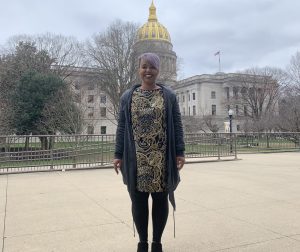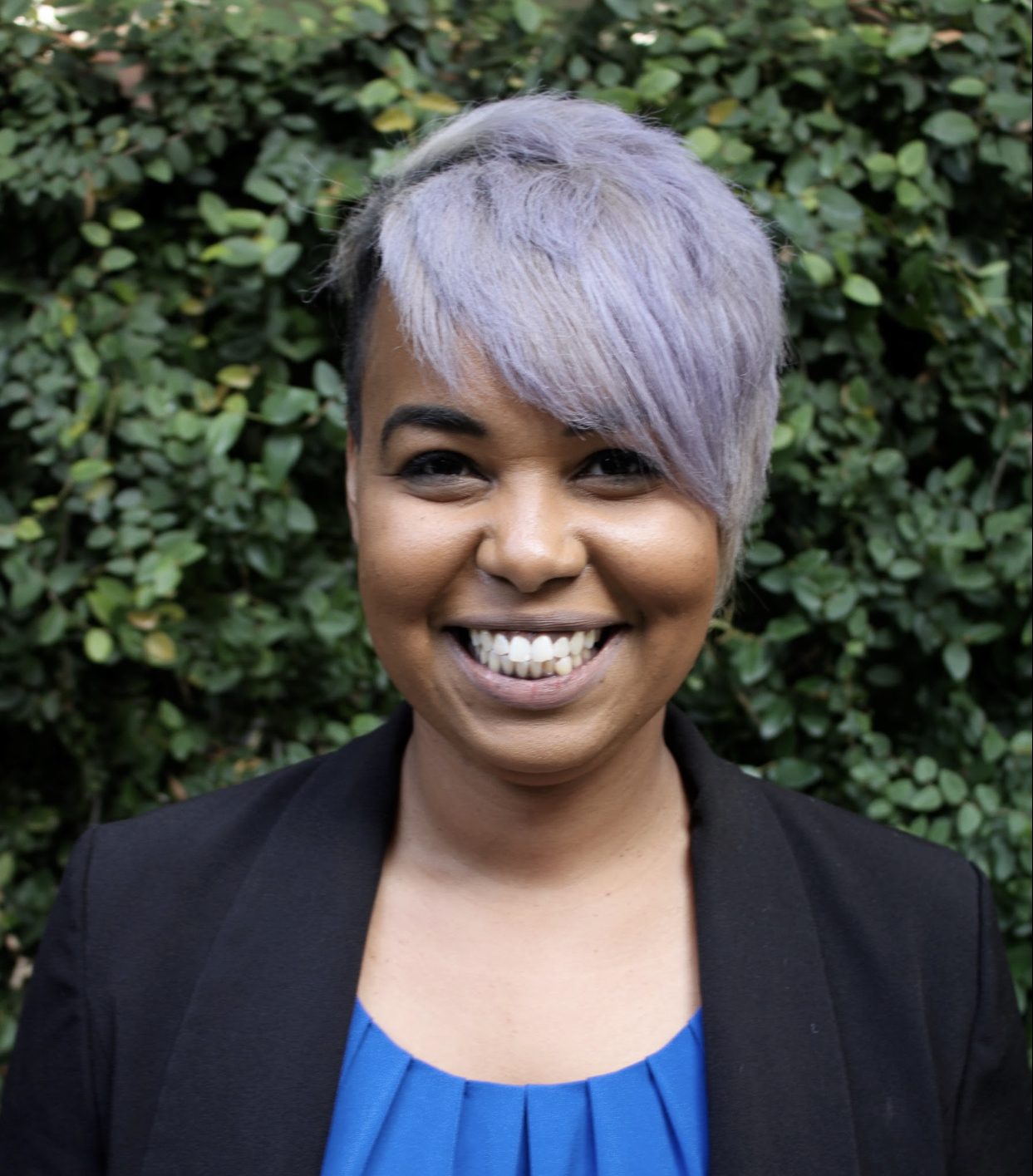
About 18 years ago, Peshka Calloway hopped on a Greyhound bus with her mom and stepdad and spent four days riding across the country, leaving behind her previous home in California for a new beginning in West Virginia. She turned 14 the next week.
Now, she describes herself as a proud Affrilachian and a military brat. Her family has always emphasized service, with her dad in the Marines and her stepfather a native West Virginian who emphasized helping neighbors and those struggling in the community. She’s centered that value as the foundation of her work.
“My focus in West Virginia is building long-term power for those living in the margins, for those that need help and need assistance,” Calloway said. “Spread the Vote and Project ID really align with my passion of making sure everyone in West Virginia lives their best and fullest lives.”
Calloway, the state director for both Spread the Vote and Project ID, helps organize efforts to get more people photo IDs and empower them to vote.
Her inspiration grew from her time as a case manager, when she saw first-hand how not having a photo ID presented a “huge barrier” to accessing basic needs and services like housing, a bank account, cashing a check, and securing employment.
Such limitations show up in unexpected places, she said. Homeless shelters can require photo ID, as do Greyhound buses. She says only one food bank in Wood County, where she lives, doesn’t require identification, and even there guests are warned they won’t continue to be served without one.
“Most of us, we take for granted having a government-issued ID. The doors of opportunity open up for us,” Calloway said. “We’re able to access spaces and we’re able to access resources that those who don’t have government-issued ID do not get access to.”
Before moving to West Virginia, Calloway was born in Honolulu, Hawaii, and moved to Dallas, Texas when her dad left the Marines. Eventually he re-enlisted and was stationed in Southern California, so Calloway went to elementary school in the small town of Fallbrook, near Camp Pendleton. When she was 11 or 12, she moved to the Hoopa Valley Reservation and her mom remarried her stepdad, which brought her to Parkersburg, West Virginia.

In West Virginia, Calloway was the eldest of seven kids in her blended family. That meant her parents had to provide a lot of food, electricity and water — “We all have to shower,” she said. Though it wasn’t always easy for her family, her parents emphasized compassion and the importance of taking care of one another.
“There [were] huge cultural differences coming from California to a new state but also into a new home,” Calloway said. “[My stepfather] really showed me the compassion and support and love of West Virginians…I’m so fortunate to be able to be raised with that knowledge.”
After graduating high school in 2005, Calloway took a road trip to Dallas to see her family and ended up joining the Army as a chemical operations specialist. When her service was over, she came back and started school at West Virginia University-Parkersburg where she received a regents bachelor of arts degree with an emphasis in business administration and an associate degree in applied science.
Now, she’s applying all of those life experiences to her work and says people need to listen most to those who live in the margins, who may not feel empowered to vote, or who feel like their voices don’t matter.
“Whether it’s you’ve lived in a shelter or you’ve needed medicaid for your healthcare coverage or you’ve fled domestic violence…whatever the reason, your voices matter so much because you’re there and you’re living this everyday,” Calloway said. “It’s so important that your voices are represented at the polls and who you’re wanting is represented at the polls because you can help protect those services that you’ve relied on and that you’ve benefited from and can help protect it for others.”


